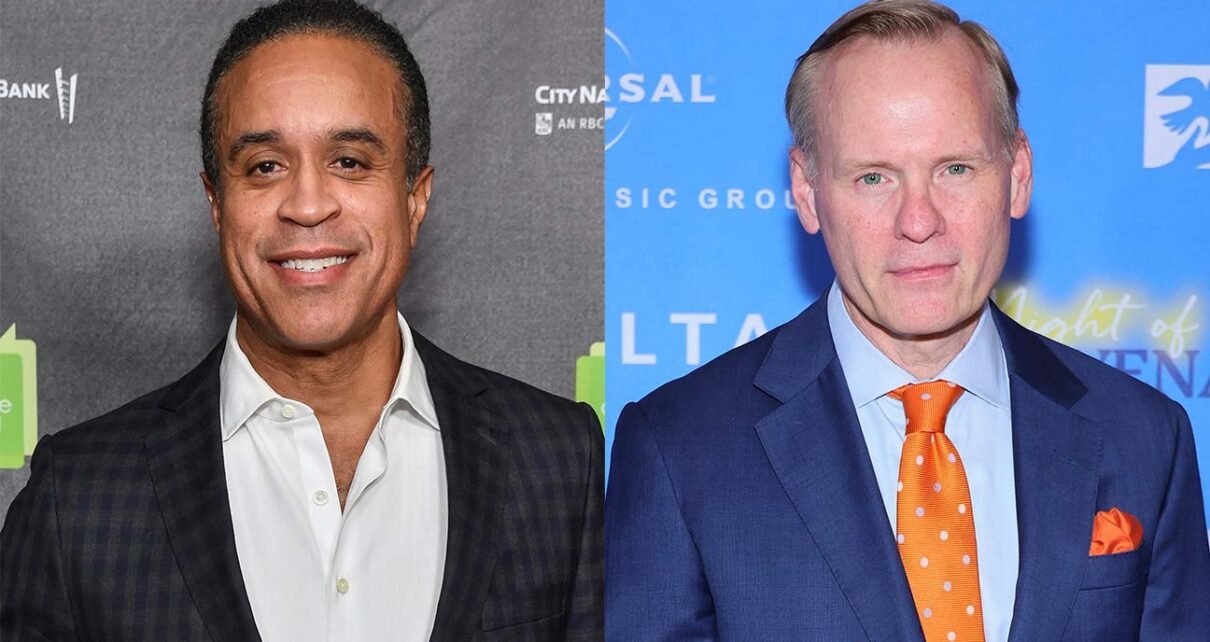The CBS Evening News will move back to New York and get a reboot that makes it more reminiscent of the long-running Sunday newsmagazine 60 Minutes, all part of a series of sweeping changes planned for the venerable broadcast later this year.
Those changes will include new anchors (yes, plural), and a new supervising producer in 60 Minutes EP Bill Owens, who will add oversight of the Evening News. News of the new format comes a few days after Norah O’Donnell announced her intent to leave the broadcast after the election to become a senior correspondent.
“Our goal is to curate what’s important, to offer context and perspective on those headlines in a meaningful way, and to focus on making and then breaking news, to offer original reporting,” says Wendy McMahon, president and CEO of CBS News and stations, in an interview with The Hollywood Reporter. “All of the above, we believe, are things that a viewer can only find on CBS News, that’s the promise, and that’s the commitment.”
“We know this is going to take a minute, but we’re very sure we can put on an extremely smart broadcast that’s well reported, well thought through, additive, and worth people’s while,” Owens adds.
The new anchors will be political correspondent and CBS News streaming anchor John Dickerson, and WCBS New York anchor Maurice DuBois. Guy Campanile will become the new EP, joined by Jerry Cipriano as senior producer. The program will relocate from O’Donnell’s home base of Washington, D.C. to New York, where it will return to the main newsroom at the CBS Broadcast Center.
“John Dickerson, obviously his mastery of all things politics is well known, he hosts a nightly show on CBS News 24/7 our streaming channel, which does incredibly well. So in addition to his subject matter expertise, his ability to flow like water from television to streaming and back again is a unique capability, and one we will leverage moving forward,” McMahon says. “Maurice is one of the best — if not the best — broadcasters in the country. Bill and I both believe that, and he has covered every major story of consequence in his role as we anchor for CBS News New York, he’s also excellent in the field, which will make him you know the person to go to when you’re sending someone to a big story.”
But in a significant change in the show’s form, they will be joined by an ensemble team of correspondents, including political correspondent Margaret Brennan, Jim Axelrod, and On The Road correspondent Steve Hartman, as well as WCBS weather anchor Lonnie Quinn, who will appear frequently to provide viewers with reported pieces and updates from their areas of expertise.
It is there that viewers might get a taste of the 60 Minutes ethos Owens says he wants to inject into the Evening News (Owens has also signed a multi-year deal to remain at the helm of the CBS newsmagazine).
DuBois, Dickerson and Brennan, for example, recently worked together on coverage of former President Donald Trump’s attempted assassination, and President Joe Biden’s decision to drop out of the 2024 election and throw his support behind Vice President Kamala Harris.
“If we can make the audience feel a little bit more informed and a little bit smarter at the end of the broadcast, that that should be our benchmark, it should be worth the audience’s time, they should learn something,” Owens says. “There’s going to be less filler in the broadcast. We’re not going to need to do everything that everybody’s seen all day, we’ve thought a lot about that. We want our reports to be a little bit more in-depth, they’re going to be longer, there’s going to be more communication, more back and forth, Q and A with the anchors and the correspondents in the field.”
“60 Minutes as a brand, its importance to viewers across platforms is immeasurable, and the strength of its distinctive, obviously memorable approach every Sunday night is without comparison,” McMahon added.
Both Owens and McMahon frame the new format as adapting to a changing media environment, one in which the evening newscast is no longer a place where people necessarily turn to simply to find out what happened that day.
It was a message shared by McMahon Thursday morning in a memo to CBS News staff, referencing “the opportunity to redefine television for an evolving audience.”
“We recognize there’s a lot here. These are big changes, and they are happening amid a turbulent political season and heightened conflicts overseas,” she added after outlining all the changes coming to the broadcast. “But what we know is that CBS News is at its best when we come together to honor our purpose and mission as journalists to meet the audience where they are today – and ensure we exceed their expectations for tomorrow.”
“I wasn’t looking for another job, but Wendy picked up on the fact that I have been here for 36 years, and just as we were talking about the news division and the place, we started having conversations about what you could do and how you would do it,” Owens says. “It was exciting to talk about the what you could do, but it needed to have the right scaffolding in place in order to make it happen.”




